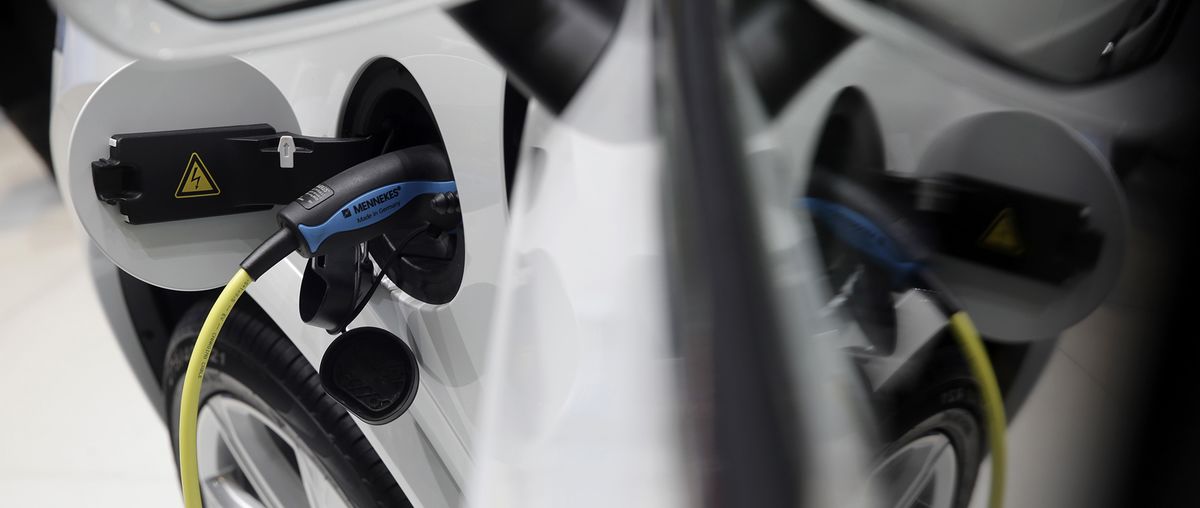The proposal by members of the U.S. House Democratic Law to provide more subsidies to union-made electric vehicles drew criticism from non-organized vehicle manufacturers, including Toyota Motor Corporation, Tesla Inc. and Revion Automotive Inc.
Under a 10-year proposal late Friday, the union-made EVs will receive an additional $ 4,500 tax incentive, which would favor three traditional Detroit car manufacturers जन General Motors Company, Ford Motor Company and Stellantis NV ज्या whose factory workers are represented by United Auto Workers. This sweetener will be on top of the इन् 7,500 base incentive that will be available for EV.
The current draft “discriminates on the basis of its choice not to merge with American automakers,” Toyota said in a statement Saturday. “We will also fight to focus taxpayer dollars on making all electrified vehicles easier for American consumers.”
Tesla CEO Elon Musk tweeted that the proposal was influenced by the huge influence of the UAW, while Honda Motor Company also called it discriminatory and urged Congress to remove the language. Revion, an electric-truck manufacturer backed by .com Mazon.com Inc., said the expansion of the tax credit is a “step in the right direction” but poses a “confusing” risk to potential buyers.
“Revion supports straightforward expansion without artificial limits to encourage EV adoption in as many homes as possible,” the Irwin, California-based startup, whose electric pickup truck is not yet available for sale, said in a statement Sunday.
Foreign automakers and other unorganized carmakers are signaling to the Biden administration that they want to take their united Detroit rivals one step further in the race to win over electric car buyers. Toyota, Honda and Tesla were all excluded from the White House program in August, during which President Joe Biden announced the national goal of emitting half of all new cars sold in the United States by 2030.
The House Wages and Means Committee plan will provide a base credit of $ 7,500 for EVs for the first five years, with another ,500 4,500 credit for those built into the union facility. An additional $ 500 credit will be provided for vehicles using home-produced batteries.
According to Michigan Democrat Rep. Dan Kildi, the proposal was to include the Democrats in the $ 3.5 trillion tax-and-expense bill. Approval for that big package has been delayed as Senator Joe Manchin, a Democrat whose vote is equally important in the divided U.S. Senate, again objected to the bill, citing tax and inflation concerns.
Additional details of the House Wage and Means Committee plan include:
A decision that would help GM and Tesla remove the current limit of 200,000 vehicles per manufacturer for tax credits.
The credit will only apply to vehicles that have a manufacturer’s suggested retail price of less than $ 55,000 for a car, $ 64,000 for a van, $ 69,000 for an SUV, and $ 74,000 for a pickup truck.
There will be an annual income limit of $ 400,000 for one person, $ 600,000 for the head of household and $ 800,000 for couples.
From 2027, the base credit of $ 7,500 will only apply to EVs manufactured in the US.
Tesla सर्वात the largest seller of EVs in the US फायदा would benefit from removing the cap of 200,000 vehicles, it is also a non-union shop and so its customers will miss Sweetner. Musk said in his tweet that the proposal has been hugely influenced by UAW and Ford, which have now created the Mustang Much-e-only single EV in Mexico. Foreign-made EVs sold in the United States are eligible for credit in the first five years.
Ford’s battery-powered F-150 Lightning will be built at its new factory in Dearborn, Michigan, which Biden visited in May. Lightning will go on sale next spring.
A UAW representative did not respond directly to Musk’s tweet, but praised the plan and drew attention to Saturday’s statement about the re-focus of subsidies on US-made vehicles after the first five years.
The Ford representative did not immediately respond to a request for comment outside of regular working hours.
Disclaimer: The views, suggestions, and opinions expressed here are the sole responsibility of the experts. No Economymono journalist was involved in the writing and production of this article.

